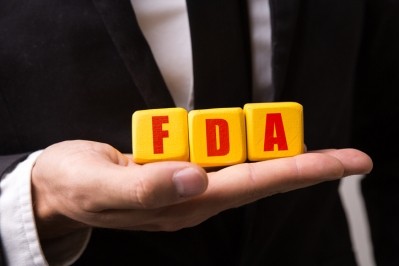FDA issues 10 warning letters in enforcement action on diabetes treatment claims

The warning letters were posted late last week. FDA has urged consumers not to use the products sold by these companies because they “have not been evaluated by the FDA to be safe or effective for their intended use and may be harmful.”
The warning letters were issued to: Live Good Inc.; Pharmaganics LLC; Lysulin Inc.; Nuturna International LLC; Phytage Labs; Ar-Rahmah Pharm LLC; Metamune Inc.; Holistic Healer & Wellness Center Inc.; Radhanite LLC; and Aceva LLC.
Diabetes is one of the most prevalent medical conditions in the US and worldwide and in many cases is attributable to lifestyle factors. According to the Centers for Disease Control, 34.2 million Americans have been diagnosed with the condition and another 88 million have prediabetes. One in 5 Americans are unaware that they are currently suffering with the condition, and more than 80% of those with prediabetes are unaware they are heading in the direction of developing type 2 diabetes.
Type 1 diabetes is a genetic disorder in which the pancreas does not produce enough insulin. Type 2 diabetes used to be referred to as ‘adult onset diabetes,’ because it developed later in life as a result of poor diet and exercise habits. But with the rising tide of obesity even among young people, that terminology is no longer accurate. According to the CBD, between 2002 and 2015 the rate of new Type 2 diabetes cases among people under 20 years of age increased by 4.8% per year.
Potential harm from ‘unapproved new drugs’
"More than 34 million Americans— just over 1 in 10 people— are living with diabetes. Dietary supplements that make fraudulent claims to treat diabetes are unapproved new drugs that could potentially harm consumers who use these products instead of seeking safe and effective FDA-approved treatments,” said Cara Welch, PhD, Acting Director of the Office of Dietary Supplement Programs in the FDA’s Center for Food Safety and Applied Nutrition. “The FDA is committed to protecting US consumers from products and companies that make unlawful claims to treat or prevent diabetes, and we’ll continue to hold companies accountable by alerting the public about products that place consumers at risk.”
The warning letters included citations for claims such as:
- “[A] treatment … that helps reduce blood sugar levels, control glucose, improve conditions for diabetic people . . . “
- “Lower insulin needs by 14%”
- “[C]linically shown to help people with diabetes or pre-diabetes…works like a sponge to remove Glucose from your bloodstream…”
FTC cease and desist orders included
The warning letters were issued by FDA’s Center for Food Safety and Applied Nutrition (CFSAN). But they all also included a boilerplate cease and desist order from the US Federal Trade Commission. The addendum notes that FTC requires health claims must have “a reasonable basis consisting of competent and reliable scientific evidence, including, when appropriate, well-controlled human clinical studies, substantiating that the claims are true at the time they are made. “
No medical foods applications
None of the manufacturers cited in the warning letters appeared to be marketing their products as medical foods for diabetes. This was a common strategy for dietary supplement manufacturers with products aimed at blood sugar control prior to an FDA guidance issued in 2013.
In a Q&A issued along with the guidance the Agency stated flatly that diabetes is a disease without a specific nutritional requirement as exists for some inborn errors of metabolism, such as phenylketonuria. As such it is not an appropriate target for a medical food product, the Agency ruled.













